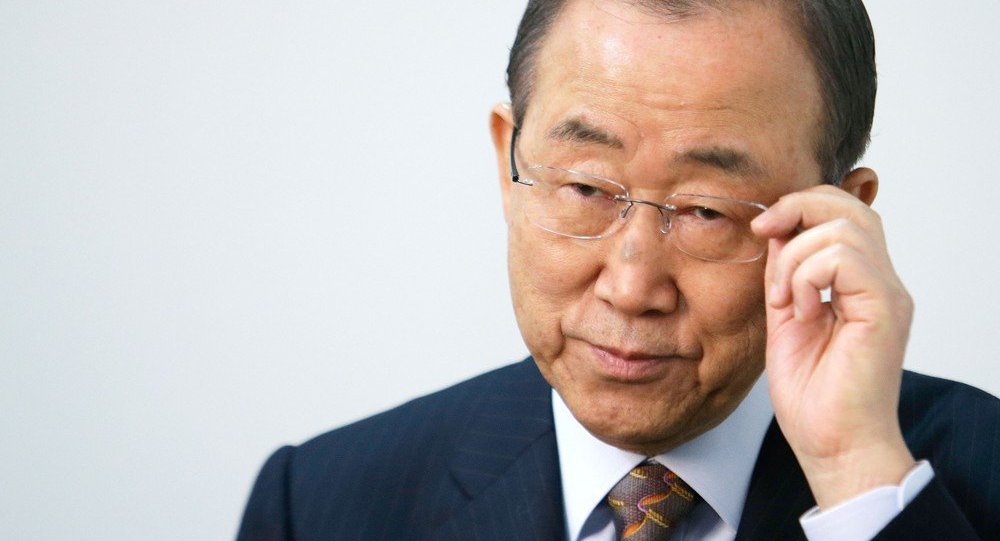SEOUL: Ban Ki-moon, a former United Nations chief and prominent international figure, returns on Thursday to his native South Korea in an increasingly uphill effort to succeed the nation’s recently impeached president.
After leading the polls for months, Ban’s support has recently eroded due to perceptions his policies would be aligned with President Park Geun-hye’s graft-tainted administration and his support of an unpopular deal with Japan to settle a World War II-era rift.
The New York indictment of Ban’s brother and nephew in a foreign-bribery case on Tuesday risks further harming his candidacy even though Ban himself has no ties to the case. He hasn’t commented on it.
Meanwhile, Ban’s rivals have been sniping at him, exploiting a perception that he’s an elite old-guard bureaucrat out of touch with voter grievances such as corruption, slowing economic growth, youth unemployment and the power of the country’s conglomerates. Such concerns sparked mass demonstrations late last year.
Underscoring his ties to South Korea’s political elite, Ban is set to receive the Order of Civil Merit, one of the country’s highest civilian honors, upon his return.
“He’s a bureaucrat of the old school, and that’s not what I think Koreans want to elect now,” said Robert Kelly, a professor of political science at Pusan National University in South Korea. Voters feel that “Ban Ki-moon is not the kind of guy who is going to bring change,” Kelly said. “Ban is quite milquetoast, and this is a pretty big year where you’ve got hundreds of thousands of Koreans demonstrating on the street.”
Ban’s spokespeople didn’t respond to requests for comment.
The country’s Constitutional Court must decide within weeks whether to remove Park from office. The snap election that decision would trigger has sparked a full-on campaign by South Korea’s leading presidential candidates.
Ban, the U.N. secretary general for a decade until December, enjoyed 28% support as recently as August, according to polling data from Gallup Korea. That sunk to about 20% in December, about on par with both Moon Jae-in, a leader of the opposition Democratic Party who lost narrowly to Park in the 2012 election, and Lee Jae-myung, the mayor of a satellite city of Seoul, whose support has surged in recent weeks.
Still, political analysts say a splintered left-leaning opposition could give Ban an opportunity to win an election with a plurality of votes.
Ban is expected to arrive on Thursday afternoon and offer remarks on his plans. He will then take the subway into Seoul from the airport, according to his campaign, part of an effort to present himself as a man of the people.
Park’s impeachment, the result of an influence-peddling scandal, has inflamed anger against the conglomerates that dominate South Korea’s economy and the traditional political class, casting doubt over many of Park’s signature policies.
Those include Park’s decision to deploy a controversial U.S.-built missile-defense system on South Korean soil to protect against North Korean threats, and a deal she struck with Japan to settle issues related to Korean women forced into sexual service for Japanese soldiers during World War II.
Souring public opinion against the “comfort women” deal, which didn’t include consultations with the handful of survivors, has already sparked criticism of Ban for his praise of the agreement while at the U.N. The other leading candidates have repudiated the agreement.
The New York indictment of Ban’s brother and nephew makes him “a much less attractive candidate,” Scott Seaman, an analyst with Eurasia Group in Washington, wrote in a note to clients. “Even if Ban argues effectively that he had nothing to do with his relatives’ alleged indiscretions, the press and his enemies will hound him, making it difficult for him to maintain the squeaky clean image that he has cultivated.”



Add new comment